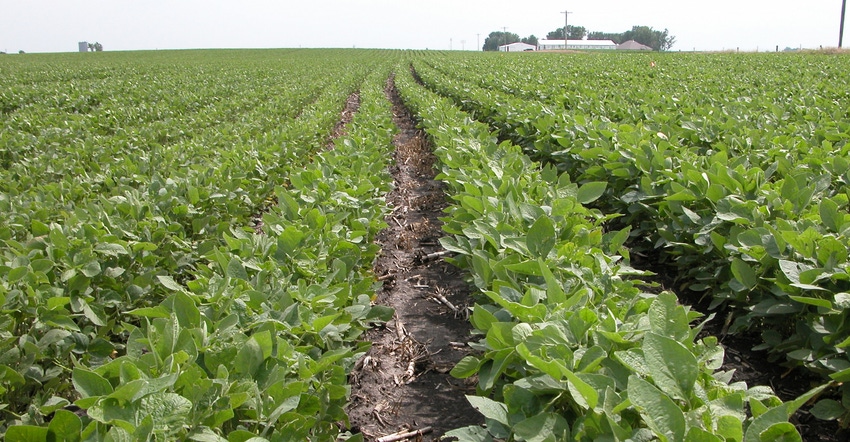June 29, 2020

Field trials led by Iowa State University scientists have saved farmers and seed companies millions of dollars by helping them select soybean varieties resistant to a major pest, according to a new economic analysis.
The analysis was led by GianCarlo Moschini, Pioneer chair in Science and Technology Policy in the ISU Department of Economics. The report found the ISU SCN-Resistant Soybean Variety Trials have created a surplus of about $140 million in Iowa and Illinois between 2011 and 2016. The analysis estimates farmers captured a third of that surplus while seed companies held the rest.
The soybean cyst nematode, a microscopic roundworm that feeds on roots of soybeans, is the greatest pathogen threat to U.S. soybean yields. Previous estimates showed the pests present in up to 70% of Iowa fields. Plant breeders have developed soybean varieties with genetic resistance to the pests, but the level of resistance and performance of these varieties can vary widely.
Field trials for SCN bean varieties
With that in mind, ISU scientists, supported by checkoff funds from the Iowa Soybean Association, have conducted field trials every year since 1997 to evaluate hundreds of resistant soybean varieties. Annual reports of the results are published at isuscntrials.info, and copies of the publications are printed and directly distributed annually to roughly 80,000 households in Iowa and northern Illinois.
The economic analysis drew on data generated through the field trials, as well as a proprietary data set of farmers’ seed choices. That data included the quantity and price paid for seed of specific soybean varieties. Using economic models, Moschini and doctoral student Seungki Lee determined how willing farmers are to pay a premium for resistant soybean varieties compared to susceptible varieties.
“Our study essentially matched the data produced by the trials over the period from 2011 to 2016 with data about farmers’ specific use of soybean varieties over the same period,” Moschini says.
Farmers make informed decisions
The analysis found that farmers were willing to pay an additional 75 cents per acre for seed of resistant varieties included in the field trial experiments. Farmers also paid an additional $1.36 per acre for seed of SCN-resistant soybean varieties that performed above the median in terms of yield in the ISU experiments.
The results indicate farmers use the field trial data to make informed decisions of what seeds to plant, says Greg Tylka, ISU Extension nematologist who leads the field trials. “Some farmers think all resistant varieties are created equal, but they’re not, which is why we do the evaluation,” he adds. “The analysis shows the value of our research overall but also shows that farmers value the varieties that perform well in the yield tests.”
The full economic analysis is available at the ISU Center for Ag and Rural Development .
Source: ISU, which is solely responsible for the information provided and is wholly owned by the source. Informa Business Media and all its subsidiaries are not responsible for any of the content contained in this information.
Read more about:
SCNYou May Also Like




